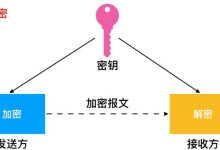在PyCharm中打开
examples/httpbin/basic_test.py
:

首先映入眼帘的是左上角那个绿色小箭头,点了一下,可以直接运行,意味着HttpRunner是能够直接被pytest驱动运行的,这可就有点意思了,难道HttpRunner的底层是pytest?带着这个疑问我全局搜索了一下pytest:

在cli.py文件中,如果参数是run,那么会执行
pytest.main(["h"])
,难道真是我猜测的这样?在
basic_test.py
最后有两行代码:
if __name__ == "__main__":TestCaseBasic().test_start()
试着从这里追踪,应该就能对调用链路拿捏个十拿九稳了。test_start()的源码如下:
def test_start(self, param: Dict = None) -> "HttpRunner":"""main entrance, discovered by pytest"""self.__init_tests__()self.__project_meta = self.__project_meta or load_project_meta(self.__config.path)self.__case_id = self.__case_id or str(uuid.uuid4())self.__log_path = self.__log_path or os.path.join(self.__project_meta.RootDir, "logs", f"{self.__case_id}.run.log")log_handler = logger.add(self.__log_path, level="DEBUG")# parse config nameconfig_variables = self.__config.variablesif param:config_variables.update(param)config_variables.update(self.__session_variables)self.__config.name = parse_data(self.__config.name, config_variables, self.__project_meta.functions)if USE_ALLURE:# update allure report metaallure.dynamic.title(self.__config.name)allure.dynamic.description(f"TestCase ID: {self.__case_id}")logger.info(f"Start to run testcase: {self.__config.name}, TestCase ID: {self.__case_id}")try:return self.run_testcase(TestCase(config=self.__config, teststeps=self.__teststeps))finally:logger.remove(log_handler)logger.info(f"generate testcase log: {self.__log_path}")
第一行注释就是证明了我的猜想是对的:main entrance, discovered by pytest,主程序入口,会被pytest发现。本文不去探究每行代码是什么意思,重点关注跟pytest相关的运行流程。跟着这段代码:
return self.run_testcase(TestCase(config=self.__config, teststeps=self.__teststeps))
继续往下走,调用了self.run_testcase,它的源码如下:
def run_testcase(self, testcase: TestCase) -> "HttpRunner":"""run specified testcaseExamples:>>> testcase_obj = TestCase(config=TConfig(...), teststeps=[TStep(...)])>>> HttpRunner().with_project_meta(project_meta).run_testcase(testcase_obj)"""self.__config = testcase.configself.__teststeps = testcase.teststeps# prepareself.__project_meta = self.__project_meta or load_project_meta(self.__config.path)self.__parse_config(self.__config)self.__start_at = time.time()self.__step_datas: List[StepData] = []self.__session = self.__session or HttpSession()# save extracted variables of teststepsextracted_variables: VariablesMapping = {}# run teststepsfor step in self.__teststeps:# override variables# step variables > extracted variables from previous stepsstep.variables = merge_variables(step.variables, extracted_variables)# step variables > testcase config variablesstep.variables = merge_variables(step.variables, self.__config.variables)# parse variablesstep.variables = parse_variables_mapping(step.variables, self.__project_meta.functions)# run stepif USE_ALLURE:with allure.step(f"step: {step.name}"):extract_mapping = self.__run_step(step)else:extract_mapping = self.__run_step(step)# save extracted variables to session variablesextracted_variables.update(extract_mapping)self.__session_variables.update(extracted_variables)self.__duration = time.time() - self.__start_atreturn self
跟着这段代码:
# run stepif USE_ALLURE:with allure.step(f"step: {step.name}"):extract_mapping = self.__run_step(step)else:extract_mapping = self.__run_step(step)
继续往下走,self.__run_step的源码如下:
def __run_step(self, step: TStep) -> Dict:"""run teststep, teststep maybe a request or referenced testcase"""logger.info(f"run step begin: {step.name} >>>>>>")if step.request:step_data = self.__run_step_request(step)elif step.testcase:step_data = self.__run_step_testcase(step)else:raise ParamsError(f"teststep is neither a request nor a referenced testcase: {step.dict()}")self.__step_datas.append(step_data)logger.info(f"run step end: {step.name} <<<<<<\\n")return step_data.export_vars
有两个分支:
if step.request:step_data = self.__run_step_request(step)elif step.testcase:step_data = self.__run_step_testcase(step)
self.__run_step_request(step)
直接调用的request:
resp = self.__session.request(method, url, **parsed_request_dict)
self.__run_step_testcase(step)
直接调用的HttpRunner():
case_result = (testcase_cls().with_session(self.__session).with_case_id(self.__case_id).with_variables(step_variables).with_export(step_export).run())
**真相只有一个,一定在HttpRunner里面。**HttpRunner是run.py模块里面的一个类:

刚才看到所有代码,其实都是在runner.py模块的HttpRunner类里面。看看run函数的代码:
def run(self) -> "HttpRunner":""" run current testcaseExamples:>>> TestCaseRequestWithFunctions().run()"""self.__init_tests__()testcase_obj = TestCase(config=self.__config, teststeps=self.__teststeps)return self.run_testcase(testcase_obj)
又调用了self.run_testcase,循环回去了。
貌似陷入了死循环,实际上答案已经有了,这不就是递归么?再回头来看刚才这两个分支:

如果是request,那么就调用
self.__session.request(method, url, **parsed_request_dict)
,这是递归的终止条件:

如果是testcase,那么表示这是子用例,那么就递归下去,这是递归的子表达式:

原来,通过
TestCaseBasic().test_start()
来执行测试,并没有调pytest,而是直接通过requests发送HTTP请求的,控制台和文件日志也是使用loguru库来自定义输出的。不得不对源码佩服得五体投地。
回到开头那个问题,为什么还有pytest的相关代码呢,实际上如果是通过命令行的run来执行用例,那么就是用直接用的pytest了:


一句话总结:如果是用命令行的run命令,那么就是通过pytest来调用的;如果是用代码里的test_start()方法,那么就是调requests作者自创的。
最后一个问题是,为什么在PyCharm中点那个绿色的小箭头,也能运行代码呢,答案很简单,这个类TestCaseBasic是
Test
开头的,这个方法test_start是
test_
开头的,这不就是pytest的规则么。
 爱站程序员基地
爱站程序员基地


